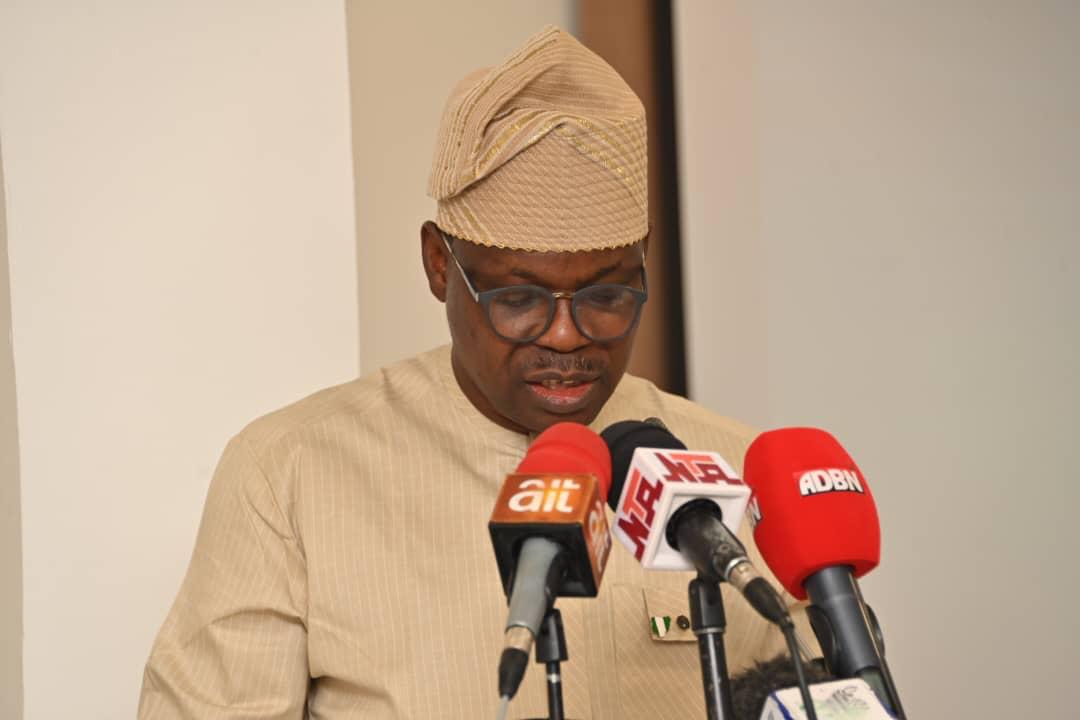Nigeria Marks World Desertification and Drought Day with Focus on Sustainable Land Management

By Faridat Salifu
Nigeria commemorated the 2024 World Desertification and Drought Day (WDDD) with a strong call to action for sustainable land management, signaling a crucial step towards addressing pressing environmental issues.
The event, held in Abuja on Wednesday, featured a keynote address by the Honourable Minister of State for Environment, Dr. Iziaq Adekunle Salako.
His speech underscored the urgency of combating desertification and drought to secure the nation’s future.
A Global Challenge, A Local Response
Typically observed on June 17th, this year’s WDDD was rescheduled to ensure greater participation following a national public holiday.
The theme, “United for Land: Our Legacy. Our Future,” emphasized the importance of shared responsibility and collaboration in land stewardship.
Dr. Salako stressed that land degradation, driven by overexploitation and unsustainable practices, poses a severe threat to Nigeria’s ecosystem and food security.
Alarming Statistics and Dire Consequences
Dr. Salako presented alarming statistics on the state of land degradation globally and within Nigeria.
He noted that 20% of the earth’s land area, including more than half of all agricultural land, is degraded.
Annually, over 12 million hectares of land are lost to desertification, with 24 billion tons of fertile soil disappearing due to dry-land degradation.
In Nigeria, an estimated 350,000 hectares of arable land are lost to desertification each year, with over 35% of the nation’s drylands under serious threat.
Government Initiatives and International Collaboration
The Federal Government has recognized the critical nature of this issue and adopted several regional programs aimed at combating desertification and promoting sustainable land management.
These include the Great Green Wall Sahel Sahara Initiative (GGWSSI), the African Forest Restoration (AFR100) program, and the Land Degradation Neutrality (LDN) framework.
These initiatives are designed to provide long-term solutions to land degradation and drought, crucial for ensuring food security, improving biodiversity, and mitigating climate change.
Presidential Directive and Ministry Efforts
Dr. Salako highlighted President Bola Ahmed Tinubu’s directive to integrate land degradation neutrality into national and sub-national policies.
The Federal Ministry of Environment, in collaboration with other ministries and agencies, is committed to emphasizing sustainable land management to address current challenges and create a blueprint for a better future.
Public Participation and Sustainable Practices
Dr. Salako called for public support and behavioral changes in managing natural resources.
He advocated for sustainable agricultural practices, afforestation, and the reduction of deforestation.
He urged individuals to plant at least 10 trees annually and to reclaim and restore degraded land. These efforts are essential for conserving the environment and achieving land degradation neutrality.
Collective Responsibility
The Minister’s address underscored the collective responsibility in tackling land degradation.
He called on states, local governments, community-based organizations, NGOs, youth groups, women organizations, farmers, academia, and the entire society to unite in this cause.
By working together, Nigeria can halt the degradation of its limited land resources and ensure sustainable growth and development for future generations.
Acknowledgements and Future Commitments
Dr. Salako expressed gratitude to President Tinubu for his leadership in environmental conservation and sustainable practices.
He also recognized partners such as the ACReSAL Project, University of Abuja, Energy Commission of Nigeria, Federal Ministry of Power, National Conservation Foundation (NCF), and the Center for Journalism Innovation and Development (CJID) for their contributions to the event.
The Minister concluded with a call for continued unity in preserving the nation’s land resources, fundamental to Nigeria’s survival and economic growth.
The 2024 WDDD serves as a reminder of the pressing need for sustainable land management to combat desertification and drought.
